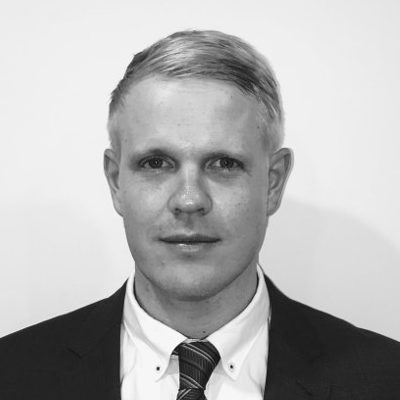 As an infantry soldier in the Australian Army, Steven Rolfe had deployed to East Timor and the United Arab Emirates. After returning from a deployment to Afghanistan he didn’t know what he wanted to do with his life. He just knew he didn’t want to be in the Army anymore.
As an infantry soldier in the Australian Army, Steven Rolfe had deployed to East Timor and the United Arab Emirates. After returning from a deployment to Afghanistan he didn’t know what he wanted to do with his life. He just knew he didn’t want to be in the Army anymore.
After spending a year deciding what he could do in the civilian world, and while waiting for his contract to finish with the Army, he began studying a Bachelor of OHS. With civilian employers struggling to appreciate the skills of a professional solder, leaving the Army was almost like leaving High School again. But as difficult as it was finding work, he eventually convinced someone to hire him.
Now, after completing his degree and proving himself as an HSE Advisor in the construction and oil & gas industries, he is an HSE Manager at Thales, the global defence, security and transport company.
1) What do you feel are the biggest challenges safety leaders are currently faced with within their business?
I think safety leaders are continuously struggling to influence the key leadership team to drive safety in the direction that will actually influence the organisation. This being driving safety from the top and leaders being present at the coal face, rather than just being seen to be interested by signing the odd policy. Safety is often the only thing on the agenda which, if not done properly can result in a fatality or someone going to jail. Yet it is often not at the top of the agenda or on the agenda at all.
2) As a safety leader, what do you feel businesses continue to get wrong when it comes to their Health and Safety strategy?
Businesses continue to wrap safety in a ball and hand it to the safety practitioner to drive. Therefore it ends up as an additional layer to a process rather than part of the process. Safety practitioners shouldn’t own safety problems, it should be the workers and supervisors themselves that own and solve safety problems with facilitation and advice from a safety practitioner. In the Army, if you weren’t doing your job safely then you weren’t doing it properly full stop. Safety was not an additional layer.
3) What do you see as one of the biggest issues facing the evolution of the safety profession?
I have found that a significant amount of people look to enter the safety profession with the most minimal qualification possible. Whether that be a 5 day online Cert IV in WHS, or a post graduate short courses instead of a full Bachelor’s/Master’s Degree. I think this damages the image of safety as a respected and influential profession. You simply wouldn’t get a seat at the table if you did this in other professions out there in industry. I believe that safety will continue to be undervalued as a vital business concept if practitioners aren’t equipped with the important legal, scientific and managerial knowledge that isn’t gained in short courses.
4) What is one key takeaway you hope our OHS audience leaves with after hearing your presentation on site?
I think the audience will find my presentation thought provoking and insightful. I will discuss how safety is practiced in warlike operations and how I leveraged off my experience in the Army to transition into civilian industry. I hope to challenge the audience on how they implement and view safety in their organisation. Ill also be discussing my observations on the safety profession since joining and what I think it’s doing horribly wrong.
